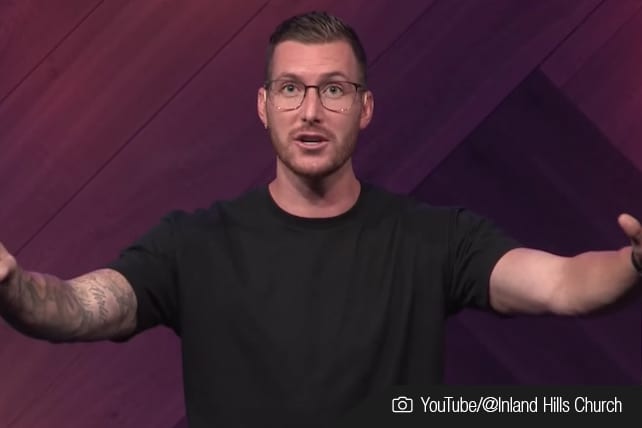Andrew Stoecklein shocked his congregation and his family when he died by suicide. In the two sermons he preached in the weeks preceding his suicide, Stoecklein spoke to his congregation candidly about depression and anxiety and how to fight it—a subject he was intimately familiar with.
Before Stoecklein Succumbed to Depression and Anxiety, He Preached on It
The 30-year-old pastor was a husband, a father of three, the son of ministry leaders, and by all accounts a strong believer. He was open with his congregation about his struggles with depression and anxiety. You certainly can’t fault Stoecklein for preaching from an inauthentic place or on a topic he was unfamiliar with.
As he walked his congregation through part of the prophet Elijah’s story (one that involved Elijah succumbing to a deep depression), it is obvious that Stoecklein was a gifted teacher. I’ve outlined the highlights of both sermons, which I hope you find as helpful as I did, whether or not you struggle with clinical depression or just the occasional bout of discouragement that we are all familiar with.
Lesson 1: We Are All Messy and Flawed—Like Our Heroes From Scripture
A “hot mess,” Stoecklein explains, is “someone who cleans up well” but who is really messy on the inside. We are all hot messes, he implies and smiles broadly. Regardless of what is going on at home, we still show up to work or church and smile and pretend as if everything is ok, Stoecklein says.
“You are surrounded by rows and rows and rows of some of the finest hot messes in town.” Jokingly, he says some come to church just to hand their “messes” [children] over to the Sunday school teacher in order to enjoy an hour of uninterrupted time each week.
Here’s the good news about our shared state of human messiness, Stoecklein says: “Mess is the thing that brings us together.”
Referencing Romans 3:22-24, Stoecklein explains this verse in light of his point, inserting his own commentary:
This righteousness is given through faith in Jesus Christ to all who believe. There is no difference between Jew and Gentile, for all have sinned and fall short of the glory of God,
[Sin makes all of us messy. Sin is when we fall short of God’s standards. Even if you don’t believe in God—you still fall short of your own standards.]
and all are justified freely by his grace through the redemption that came by Christ Jesus.
[What brings us together (mess) is what brought God near.]
Here’s the best news, he says: God draws near to us because of our mess. In fact, sometimes, it takes a mess to set up the meeting with God.
Next Stoecklein asks us to consider Elijah’s story. He describes Elijah as the “Kanye of prophets,” referring to the rapper who has a reputation for being a tad on the arrogant side. Stoecklein explains that Elijah is “kind of a big deal and he knows it.”
After Elijah experiences a huge victory over the prophets of Baal in 1 Kings 19, Queen Jezebel threatens him and Elijah has a full-on panic attack. You’d assume that fire coming from heaven and consuming the prophets would have stayed Elijah against Jezebel’s threat to kill him, Stoecklein reasons. Instead, he “hits the wall.”
Success can become a wall for us, Stoecklein explains.

